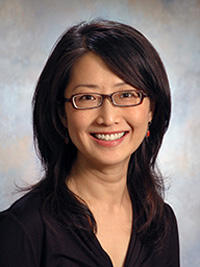Outside theater and before cinema, the classical comedy Romance of the Western Chamber commanded a field of visual cultural production and acquired a quasi-cinematic quality. Generations of artists in late imperial China visualized and animated its familiar narrative through such devices as page breaks in book illustrations, revolving lanterns, folding fans, and “wide-screen” hand-scrolls. It was easily anticipated that the new medium of cinema would soon capitalize on this canon.
China Sun Motion Picture Company (Minxin) was the first to produce a film adaptation in 1927, and subsequently reedited the film for exhibition in Europe. This version, drastically abridged and made for export, flaunts a dazzling genre mixture of slapstick, mischief comedy, trick film, travelogue, martial arts and war film, not to mention romantic comedy and costume drama. An installation at the experimental Studio 28 in Paris, the film was one of the earliest embodiments of an avant-pop tradition in Chinese-language cinemas. New CMS faculty Xinyu Dong traces these inter-medial practices, with a focus on the film adaptation and its cross-cultural exhibition.
Xinyu Dong is a new assistant professor in the Department of Cinema & Media Studies and the College. Her research and teaching interests include early cinema, film exhibition and spectatorship, genre theory, play theory, Chinese-language cinemas, and global and regional (East Asian) image exchange. Her current book project, “China at Play: Republican Film Comedies and Chinese Cinematic Modernity,” introduces the notion of “play” to the studies of modern China and national cinemas as both a theoretical intervention and a historical excavation of a complex ludic tradition in the first half of twentieth century. She recently published “Meeting of the Eyes: Invented Gesture, Cinematic Choreography, and Mei Lanfang's Kun Opera Film,” in The Opera Quarterly (August 2010); and “The Laborer at Play: Laborer’s Love, the Operational Aesthetic, and the Comedy of Inventions,” in Modern Chinese Literature and Culture (Fall 2008). Dong received a PhD from Harvard University in 2009, and was a postdoctoral fellow at Stanford University prior to joining the University of Chicago faculty.
Image

